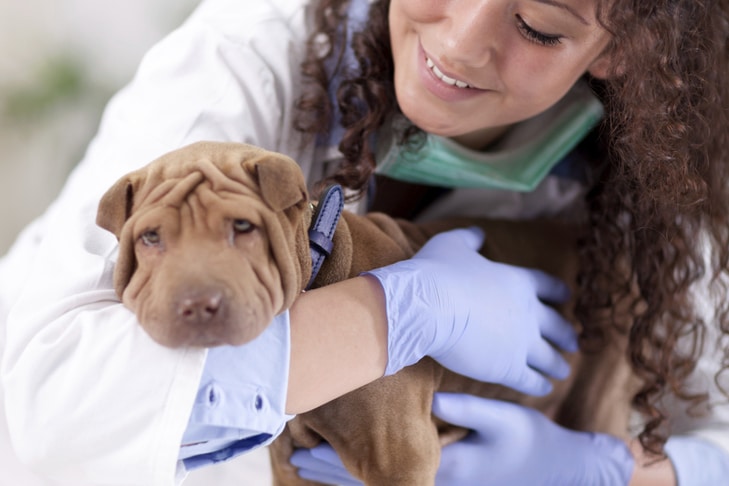Lately, your puppy seems like they’re in pain, but even after being assessed by your veterinarian, the dog still isn’t showing signs of improvement. At what point do you consider asking your veterinarian if there are other channels you can pursue?
Is Asking for a Second Opinion OK?
“The trust between pet owners and their veterinarians runs deep,” says Dr. Jose Arce, American Veterinary Medical Association president. “Just as in human medicine, sometimes owners want the reassurance of a second opinion.”
You like and rely on your veterinarian and don’t want to offend the doctor, but there’s nothing wrong with seeking another opinion. Obtaining another point of view can lend comfort by either confirming the first diagnosis or formulating a more effective treatment plan.
Don’t worry about hurting your doctor’s feelings. Veterinarians understand your concern and want the best outcome for your dog. Sometimes, a vet will recommend a second opinion or refer you to see a specialist.
After all, it’s your dog’s well-being that matters the most.
Not every veterinarian knows the specifics of every condition and may be unfamiliar with a breed’s unique health issues. That’s when a second doctor might catch things your original vet misses. Often, a veterinarian will consult with another colleague to formulate a new course of treatment.
When a health condition exceeds a general practitioner’s expertise, they may refer you to a specialist who can diagnose or treat a specific issue.

What’s special about a veterinary specialist? This veterinarian underwent additional training in a specific area and proved their knowledge and skills by examining and treating animals.
“Many times, it is the primary care veterinarian who seeks a second opinion on behalf of a client from a specialist,” says Dr. Arce.
When Scarlett, Carol More’s 6-month-old German Shorthaired Pointer, developed a limp in her right hind leg, More’s regular veterinarian examined the dog and performed a few x-rays.
The doctor diagnosed the problem—osteochondritis dissecans (OCD), abnormal development of the cartilage on the end of the bone in the joint, but referred More to a veterinary orthopedic specialist. The specialist had treated this condition many times in other dogs and had specialized surgical equipment to correct the problem.
“In cases where a client wants to consult with a specialist, the best approach is to work through their primary veterinarian for recommendations or referrals,” says Dr. Arce. “This helps the primary veterinarian know the care their patient is receiving outside their clinic and coordinate and maintain the level of care.”
Calling on a Specialist
Once solely the domain of veterinary specialists, today, many general practitioners can successfully diagnose and treat conditions such as hypertension, diabetes, and Cushing’s disease. Other more complicated conditions may require a specialist for an expert outcome.
“With a cancer diagnosis, always talk to a veterinary oncologist,” says Dr. Tyneway. “New research is being done every day, and these specialists keep up with the latest developments and can provide options.”
An oncologist also helps educate owners on the prognosis and can discuss palliative and quality of life issues, says Tyneway.
For a dog diagnosed with juvenile hip dysplasia or in need of a tibial plateau leveling osteotomy (TPLO), a procedure to repair a tear in the cranial cruciate ligament, Tyneway refers her clients to an orthopedic specialist.
“These conditions require vast veterinary experience,” she says. “If these operations aren’t done properly, the dog may experience constant discomfort and may need more rehabilitation.”

Other areas of expertise recognized by the American Board of Veterinary Specialties include:
- Cardiology
- Dentistry
- Dermatology
- Neurology
- Nutrition
- Ophthalmology
- Orthopedics
- Sports Medicine and Rehabilitation
To locate a specialist, ask your veterinarian for a referral or contact the American Board of Veterinary Practitioners.








